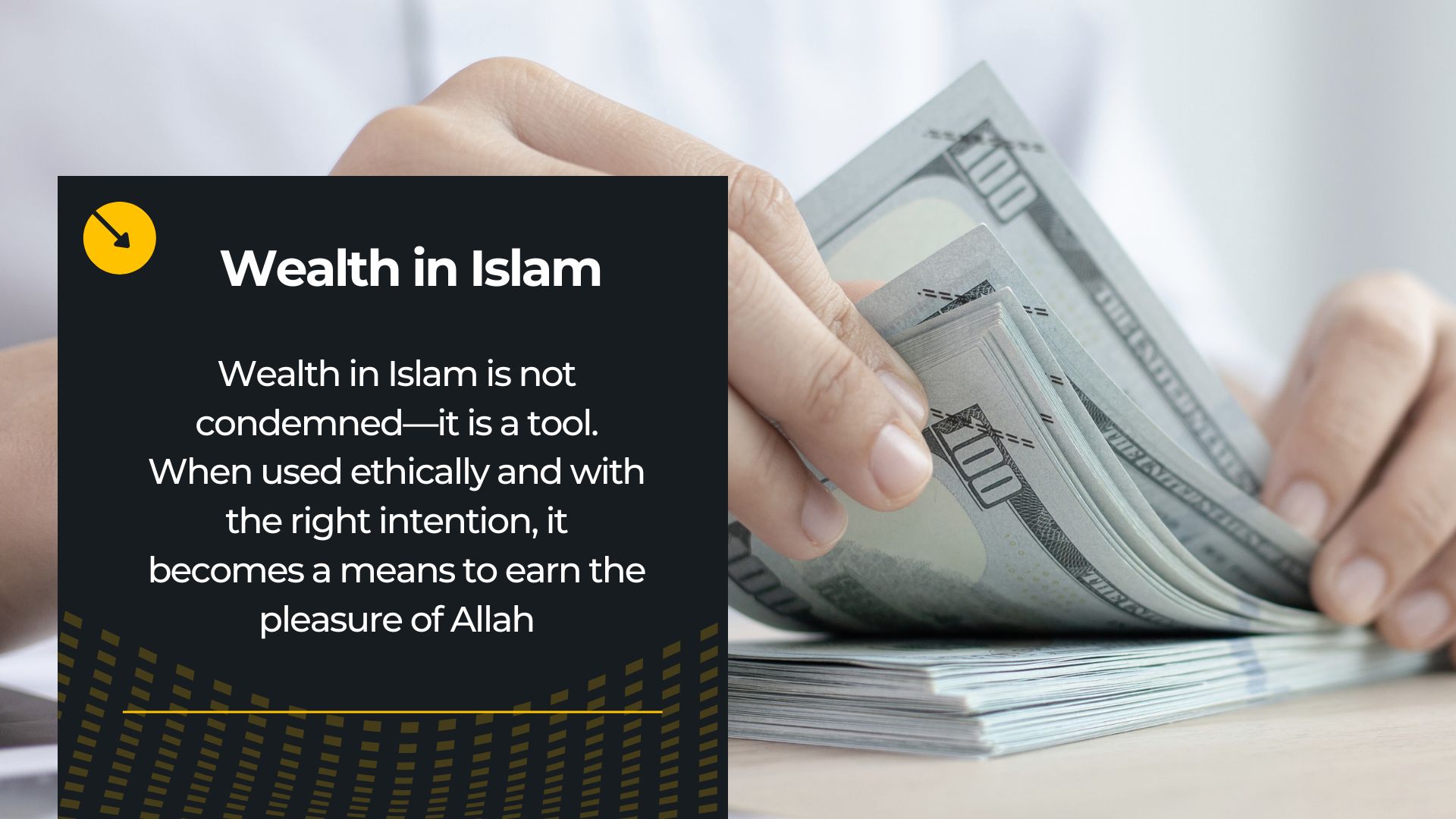Earning, Saving, and Giving in 2025
In Islam, wealth is not seen merely as a means of personal comfort, but as a trust and responsibility from Allah. As we navigate the complexities of the modern financial landscape in 2025, Islamic teachings on earning, saving, and giving remain more relevant than ever. These principles promote ethical living, financial balance, and social justice—values deeply needed in today’s world.
Earning Wealth the Halal Way
Islam encourages the pursuit of wealth, as long as it is earned through lawful (halal) means. Honest trade, fair business practices, and hard work are all praised in the Qur’an and Hadith. In 2025, as digital platforms, remote work, and global entrepreneurship continue to grow, Muslims are finding new ways to earn while staying true to their faith.
The Prophet Muhammad (peace be upon him) said, “The honest and trustworthy merchant will be with the Prophets, the truthful, and the martyrs” (Tirmidhi). This hadith highlights the spiritual reward tied to ethical business conduct. Fraud, exploitation, and interest-based earnings (riba) are strictly forbidden, making transparency and integrity vital in all financial dealings.
Saving with Purpose and Moderation
Islam promotes a balanced approach to saving. While it’s important to prepare for future needs and avoid wasteful spending, excessive hoarding is discouraged. Muslims are advised to manage their finances responsibly, ensuring that their savings serve both personal stability and communal benefit.
In 2025, with the rising cost of living and global economic uncertainty, Islamic financial planning tools are becoming increasingly popular. Halal investment options, Islamic banking, and digital zakat calculators are helping individuals align their savings with Islamic principles. Planning for retirement, education, and emergencies is encouraged, as long as wealth does not become an obsession or a cause for arrogance.
The Qur’an warns against miserliness:
“And let not those who [greedily] withhold what Allah has given them of His bounty ever think that it is better for them. Rather, it is worse for them” (Surah Al-Imran, 3:180).
This verse reminds believers that wealth is not to be locked away, but to be used wisely and generously.
Giving as a Path to Blessings
One of the most unique aspects of wealth in Islam is the emphasis on giving. Charity is not just recommended; it’s a duty. Zakat, the obligatory annual charity (usually 2.5% of one’s savings), purifies wealth and ensures the circulation of money within the community. Beyond zakat, voluntary charity (sadaqah) is highly encouraged.
In a world where income inequality is growing, Islamic giving plays a vital role. From local food drives to global humanitarian relief efforts, Muslims in 2025 are using modern platforms to give in impactful ways. Crowdfunding sites, online zakat payments, and community waqf (endowment) projects are making generosity more accessible and widespread.
Giving also transforms the heart. The Prophet (peace be upon him) said, “Charity does not decrease wealth” (Muslim). While it may seem counterintuitive, those who give often find barakah (blessing) in their wealth and life, reinforcing the belief that true prosperity lies not just in keeping, but in sharing.
Balancing Dunya and Akhirah
Wealth in Islam is not condemned—it is a tool. When used ethically and with the right intention, it becomes a means to earn the pleasure of Allah. Muslims are encouraged to live comfortably, provide for their families, and contribute to society, while also remembering that this world is temporary.
In 2025, the challenge is not just earning more, but earning with integrity, saving with purpose, and giving with a heart full of faith. By following Islamic principles, wealth becomes more than currency—it becomes a source of peace, responsibility, and eternal reward.
- Info@salihaonlineacademy.com
- Chaman Zar Colony, Rawalpindi
- Sunrise At: 5:15 AM
- Sunset At: 4:50 PM
- Let’s Talk +923301790195


Leave A Comment